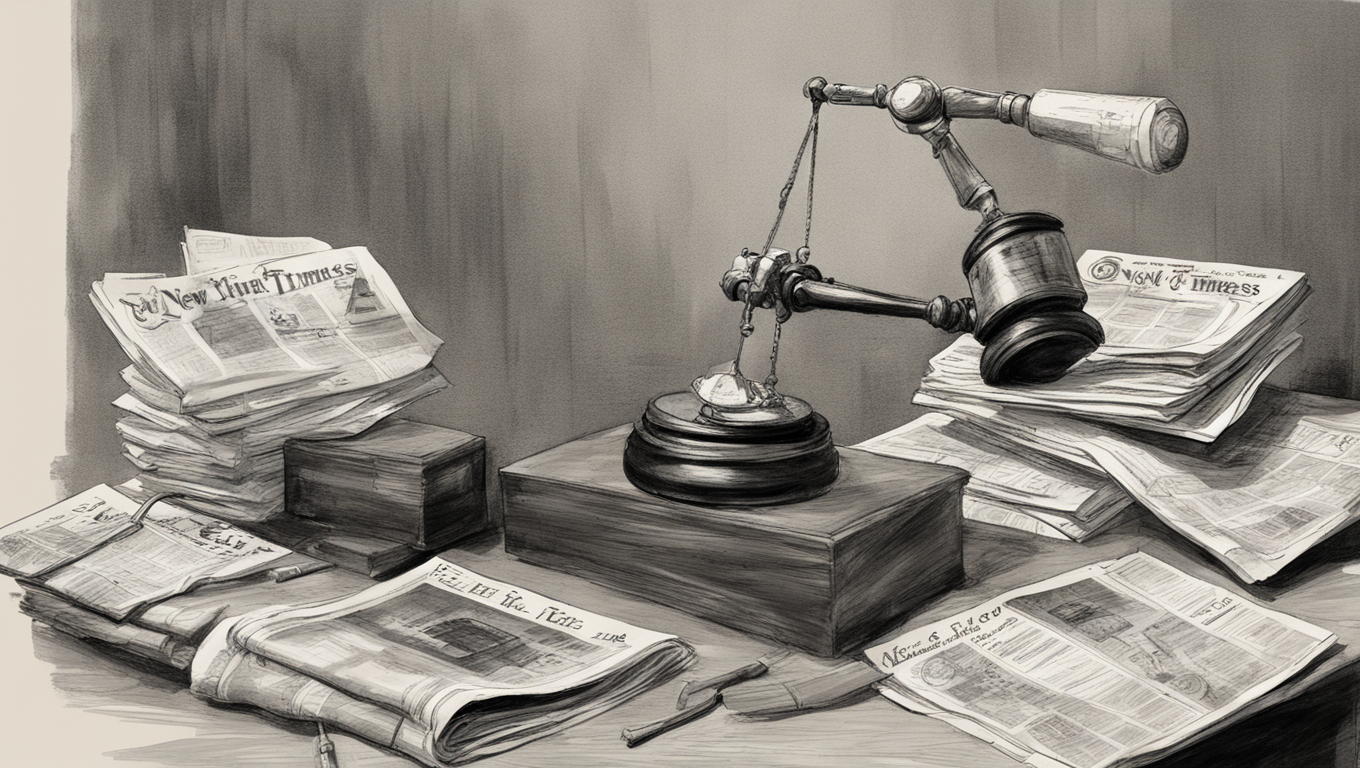AI vs Journalism: The Legal Battle over ChatGPT’s Training on The New York Times Articles
In a groundbreaking case that could shape the future of technology, The New York Times is taking legal action against the creator of ChatGPT, an artificial intelligence bot. The newspaper alleges that ChatGPT was trained on millions of its copyrighted articles, sparking a heated debate about the impact of AI on journalism.
This lawsuit is not an isolated incident, but it is certainly the most high-profile one. At stake are questions that could determine the fate of a technology with immense potential to revolutionize the world. Will AI ultimately be a force for good or ill? The answer hinges on various key factors.
During this legal battle, the core issue is whether AI systems like ChatGPT can be held accountable for “learning” from humans through examples, in the same way that humans learn. James Grimmelmann, a professor of digital and information law at Cornell Tech and Cornell Law School, succinctly summarizes the argument: “The New York Times says you’re not just learning about American history from reading Times' articles. You are using this to potentially produce articles that compete with the New York Times for journalism. You are free riding off of our work in a way that undermines the market for it.”
This raises profound questions about the similarities and differences between human and machine. As AI technology advances, machines are increasingly able to mimic the creative pursuits that humans have long mastered. The issue of compensation for the creators whose work is used as a training dataset becomes a contentious one. How much credit and compensation should be given to the humans behind the original content that AI systems learn from?
Moreover, the survival of bots like ChatGPT may depend on their access to a wide range of copyrighted material. The ability to learn from and reference such material is crucial for the development and improvement of AI systems. If restrictions are imposed on these systems, it could have significant implications for their capabilities and potential.
While this case between The New York Times and the creator of ChatGPT unfolds, it is important to consider the broader context. The intersection of AI and journalism is a complex territory, with ethical, legal, and economic dimensions. Balancing the protection of copyright holders with the need for innovation and progress is a challenge that requires careful consideration.
The outcome of this legal battle will undoubtedly set a precedent for future cases involving AI and its relationship with copyrighted material. It will shape the evolving landscape of journalism and AI, and potentially influence the path that AI development takes in the years to come.
As we navigate this uncharted territory, it is essential to engage in thoughtful discussions and debates about the rights and responsibilities of AI systems, the impact on content creators, and the future of journalism. The merging of human and machine in the realm of information dissemination raises profound philosophical questions. How we address these questions and find a balance between the power of AI and the rights of creators will shape the future of our society as a whole.





Use the share button below if you liked it.